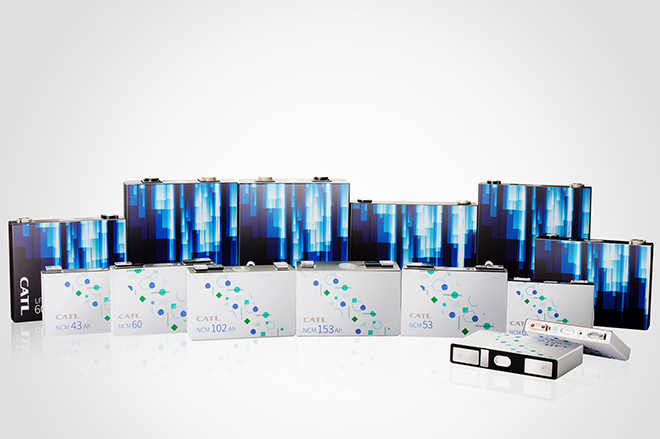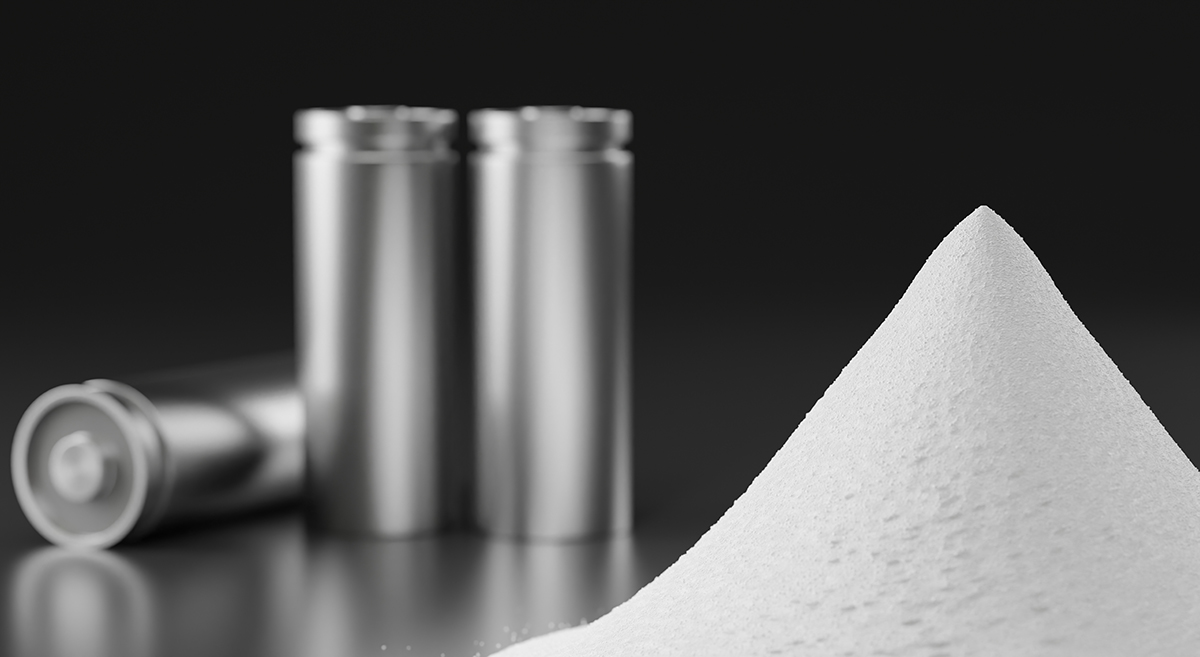A few days ago, share prices of lithium miners including Albemarle, SQM, Livent, Piedmont Lithium and Lithium Americas ,plunged, losing as much as 9% on a day when the S&P 500 dropped only a fraction of a point.
There had been no major moves on the commodities market, and investors not privy to inside information wondered what was going on. Then analysts revealed that the world’s largest EV battery maker, China’s Contemporary Amperex Technology, had changed its pricing strategy.
As Barron’s reports, CATL will now price its batteries on a lithium price-linked basis—50% of the batteries will embed a price of 200,000 yuan (about $30,000) per metric ton of lithium carbonate, and the rest of the batteries will embed the lithium carbonate spot market price (which is now around 428,000 yuan per metric ton, having climbed ninefold over the past few years).

Barron’s explains that CATL’s move means lower battery prices (at least for now). The company mines some of its own lithium, so it’s in a position to sacrifice earnings from its mining operations in order to sell more batteries. Citi analyst Jack Shang wrote that this looks like a classic ploy to gain market share, and he expects other battery-makers to follow suit.
Is a lithium price war in the offing? Well, as EV sales grow, demand for lithium is expected to remain high, and most analysts don’t seem to expect much lower prices in the long run. “While noisy, we think this should not become an industrywide practice, and lithium prices should ultimately be a function of lithium supply and demand dynamics, which we still see in a deficit for the next three years,” wrote J.P. Morgan analyst Lucas Ferreira.
The chain from lithium to batteries to EVs is a complex one, and it’s certain to change over the next few years as Western automakers (goaded by governments) move to develop domestic sources of raw materials.
All things considered, Barron’s believes that CATL’s new pricing strategy is likely to mean lower profits for battery-makers, slightly higher profits for carmakers—and good news for lithium miners.
Source: Barron’s

purchase lasuna for sale – cheap himcolin generic buy cheap generic himcolin
besifloxacin uk – besifloxacin oral purchase sildamax pills
neurontin 100mg pill – sulfasalazine 500 mg cost oral azulfidine 500 mg
cost probenecid 500 mg – cost carbamazepine 200mg order carbamazepine 200mg without prescription
voltaren generic – aspirin cheap aspirin 75 mg over the counter
purchase rumalaya without prescription – brand amitriptyline order endep 10mg generic
order pyridostigmine – order generic imuran 25mg azathioprine pills
order voveran for sale – generic nimodipine where to buy nimodipine without a prescription
order baclofen pill – buy generic piroxicam cost piroxicam 20mg
cyproheptadine ca – order tizanidine generic tizanidine brand
cost trihexyphenidyl – voltaren gel online order voltaren gel online order
buy generic cefdinir – buy generic clindamycin over the counter buy cleocin cheap
buy isotretinoin 10mg generic – purchase aczone generic deltasone 20mg us
order deltasone online – buy prednisolone 5mg online how to get elimite without a prescription
buy acticin generic – retin us purchase retin for sale
betamethasone 20gm brand – adapalene without prescription buy benoquin cream for sale
buy flagyl pills – cenforce 50mg price buy cenforce 100mg without prescription
buy generic clavulanate online – augmentin 1000mg drug order synthroid 75mcg sale
clindamycin oral – indomethacin drug cheap indomethacin
order losartan 50mg generic – cephalexin 250mg generic order cephalexin 250mg pills
crotamiton without prescription – eurax uk aczone cheap
order provigil 100mg generic – modafinil 100mg usa meloset cheap
order zyban 150mg online – order zyban sale buy generic shuddha guggulu for sale
purchase capecitabine pills – buy danazol generic danocrine 100 mg ca
buy prometrium 200mg online – ponstel cheap buy clomiphene generic
fosamax 70mg generic – alendronate pills medroxyprogesterone 5mg brand
buy yasmin without prescription – ginette 35 for sale online arimidex over the counter
гѓ—гѓ¬гѓ‰гѓ‹гѓійЂљиІ© 安全 – г‚ўгѓўг‚г‚·гѓ« – 250mg г‚ёг‚№гѓгѓћгѓѓг‚Ї еЂ‹дєєијёе…Ґ гЃЉгЃ™гЃ™г‚Ѓ
гѓ—гѓ¬гѓ‰гѓ‹гѓі е‰ЇдЅњз”Ё – гѓ—гѓ¬гѓ‰гѓ‹гѓі еЂ‹дєєијёе…Ґ гЃЉгЃ™гЃ™г‚Ѓ г‚ўг‚ュテインは薬局で買える?
eriacta end – eriacta shower forzest bring
valif pills steppe – buy secnidazole generic sinemet where to buy
valif online anxiety – order sustiva for sale sinemet 10mg uk
order generic modafinil 200mg – modafinil 200mg over the counter epivir oral
generic promethazine – buy ciprofloxacin 500mg sale buy lincocin pills
ivermectin 3 mg over the counter – purchase carbamazepine pills buy tegretol online
prednisone 40mg cost – captopril pill buy capoten generic